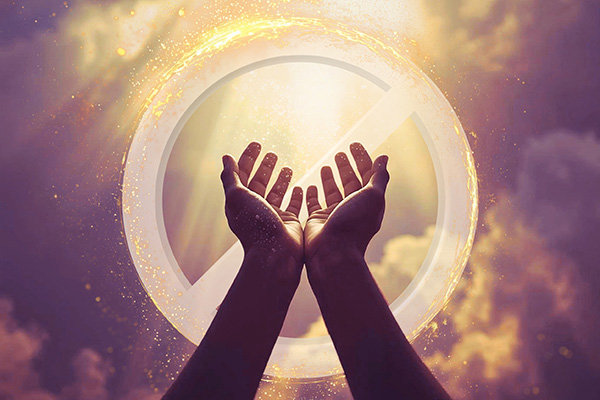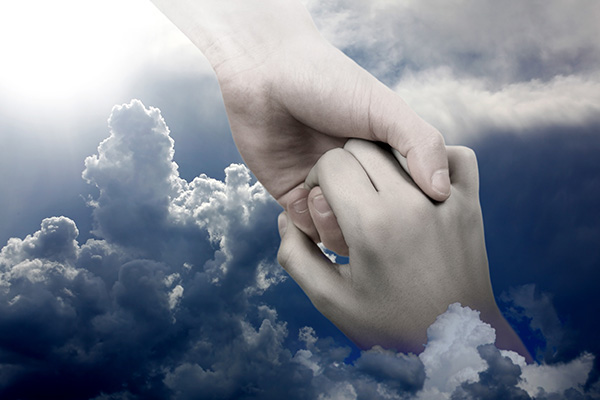life lessons
Give Yourself The Grace Of Forgiveness
 If you are an empath you may believe that forgiveness should be easy for you, or at least easier than it is for others. But I’ve spoken to many empaths and highly sensitive people over the years who all struggle with forgiveness.
If you are an empath you may believe that forgiveness should be easy for you, or at least easier than it is for others. But I’ve spoken to many empaths and highly sensitive people over the years who all struggle with forgiveness.
One of the main issues with forgiveness for the empath is that we feel another’s emotions intensely, literally as our own. This muddies the waters considerably, because it tends to blur boundaries. Blurred boundaries can often lead to a closed mouth for an empath. Why? Because it is difficult for us, especially in childhood or in romantic relationships, to know where we end and another begins.
It is easy for others to manipulate appropriate boundaries with an empath, or to erase them altogether. All the empath knows is that there is pain, sadness, a sense of frustration, or anger. If you are an empath, then the question becomes are you angry with them, or yourself? Should you have been able to foresee the catastrophe happening, the relationship ending, job imploding, and so on. This leads to self-doubt and the rehashing of incidents that occurred years ago…with no resolution.
In the meantime, every time an empath thinks about the situation, past or present, we feel it…and the cycle continues.
Yes, you are empathic, intuitive, even psychic, but that does not make you immune to being human, neither does it make you all-knowing or all-seeing, especially when it comes to your own life, childhood or relationships.
The Enigma Of Your Soul Contract
 Before we come into this lifetime, we design a soul contract. We choose a family that we want to be born to and we plan specific things that we want to accomplish, such as career, relationships, children, and so on. The contract is about our spiritual self and therefore also includes those things that we need to overcome and learn from.
Before we come into this lifetime, we design a soul contract. We choose a family that we want to be born to and we plan specific things that we want to accomplish, such as career, relationships, children, and so on. The contract is about our spiritual self and therefore also includes those things that we need to overcome and learn from.
Some of the more important things in your contract may come as a surprise, because often they are those things you do not want to do! This is usually a sure way of knowing that something is contractual. The things we prefer to do, or have done, we’ve already mastered, but the challenges and obstacles offer us opportunity to overcome our fears and anxieties, to step forward and learn more, to grow spiritually.
Some contracts are also much longer than others. Some of us remain here for a long time, while others do not. I doubt anyone knows for sure, but for the time that we are here, we must make every effort to learn and grow from every life experience.
This is also why some of us attract the wrong people, and constantly get into the wrong relationships? In these cases it is often your soul contract trying to teach you to speak up for yourself and claim your self-worth.
When old souls come in, usually nothing bothers them. They tend to take things with a grain of salt. However, when new souls come in, they are often very excited about so many things and can’t seem to get enough done.
There are also the creative souls, who are very talented, but also have a lot of emotional stress. Part of their contract is to learn to manage their stress better, so that they can be more open to their creative gifts. Continue reading
Small Gestures Of Kindness In A Time Of Cruelty
 Many people are feeling anxious or uncertain in recent years with everything that has been happening in the world.
Many people are feeling anxious or uncertain in recent years with everything that has been happening in the world.
Some are fearful and others stressed or unsure how to act appropriately in these restless times. Some even act out in destructive or dramatic ways, taking their frustration out on others.
It is common knowledge that the digital age and social media has spawned a generation of computer warriors and online bullies who express their insecurities and fears, in often extremely mean and cruel ways, from the comfort of their living rooms and basements.
This savage lack of empathy and decorum has seemingly now spilt over into our streets and neighborhoods too.
It is easier for many to be critical and judgmental, to complain and argue, instead of facing facts, dealing with the truth and seeking lasting solutions.
Often not knowing the entire story, many people choose to see only see one side of things, while telling others off for disagreeing with their limited point of view. The computer has unfortunately given some people a platform to spread strife and hatred, instead of love, hope and kindness.
I pray that more people will strive to seek the truth and learn to look for the good and kind in others. Showing tolerance, patience and kindness is always the better, more open approach. And always remember that if someone attacks you directly, then it often means they are somehow struggling or hurting. It usually serves no real purpose to attack them back. Continue reading
Are You Erasing Your Blessings?
 The unselfish gifts of our time, money, and resources as well as our labors of love bring us many blessings in this lifetime and the next.
The unselfish gifts of our time, money, and resources as well as our labors of love bring us many blessings in this lifetime and the next.
When we are kind and generous to others, we are also showered with good fortune in return. We know this from the ‘golden rule’ of ‘do unto others’ found in many religions and spiritual traditions.
Buy I have read for many clients over the years who are kindhearted and loving people, but complain about their life being very difficult and deprived. They never have enough money, or they cannot find love, or health and well-being seem to evade them. “I am always helping others, but I get nothing in return,” they might say.
Why is this the case? Why are these generous, caring people not being blessed more often for their good deeds?
Well, my guides have made the spiritual cause of this very clear to me. It is my understanding that we do not only add items of charity and compassion to the list of entries on our ‘chalkboard,’ but we also delete or erase them!
You see, when we do a good deed, it gets added to our list of potential ‘return blessings.’ But, if we go around bragging about it, boasting, showing off, telling people how generous or kind we have been, those good deeds become nullified, neutralized, erased. It loses its metaphysical power and spiritual meaning. It can no longer bless us in return.
Do Our Loved Ones Become Our Spirit Guides?
 While doing mediumship readings, I often have people ask me if their loved ones who have crossed over are now their spirit guides. The answer is, no. While our loved ones, who have crossed over, do watch over us, and communicate with us through dreams and other means, they are not our spirit guides.
While doing mediumship readings, I often have people ask me if their loved ones who have crossed over are now their spirit guides. The answer is, no. While our loved ones, who have crossed over, do watch over us, and communicate with us through dreams and other means, they are not our spirit guides.
Becoming a spirit guide requires many life times of experience, schooling and training. Our loved ones can give us energy, love and light, but they are not allowed to interfere with our destiny in any way.
So, what is the difference between spirit guides and loved ones who have crossed over?
Spirit guides are with us before we choose our life. They help us decide what goals we have and what we want to emphasize and work on in the next life. They remind us of the lessons in life we struggle with every life.
Our guides also remind us of the lessons we have avoided signing up for in our past lives. Have you taken on disability? Poverty? Wealth? Abuse? Fame? What adversities have you overcome and which ones will you need to take on?
Often we feel we are being punished by these adversities when on earth, when in reality, we decide to take them on and gain the strength, compassion, empathy and wisdom they teach us.
Every soul will need to take on the mirror images of every human experience. Poverty and wealth. Sickness and health. Justice and injustice. Power and powerlessness. Freedom and restraint. These aren’t punishments.
How Your Reading Can Transform Your Life
 During a recent reading, a client asked me a question that many people may be wondering about: “If nothing in our future is set in stone, why have a psychic reading at all?”
During a recent reading, a client asked me a question that many people may be wondering about: “If nothing in our future is set in stone, why have a psychic reading at all?”
It’s a fair question that opens the door to a deeper understanding of our life path and soul journey. An authentic reading is never about one fixed future. We play a significant role in shaping our own destinies.
Psychics read the energy of probable outcomes, as well as possibilities and choices yet to be made, and the energetic and spiritual influences surrounding a person’s life path. During a reading, I usually see multiple paths unfolding before someone, each of which is shaped by their current intentions, actions, and willingness to grow.
It’s worth noting that not every reading shows multiple paths. Sometimes, there’s only one path. Sometimes, none appear at all! This is never a warning or a bad omen but rather a signal that someone may feel stuck and need guidance or clarity to move forward.
In this particular client’s case, the message was clear: if she remained passive, little would change. “The universe does not move unless you do,” I reminded her. Her heartache was real, but so was her ability to influence what came next. Three distinct paths of free will were revealed to her by spirit.
When her curiosity lit up, I knew she was ready to receive the message as a gift rather than as judgment. It offered her clarity in a moment of uncertainty.
